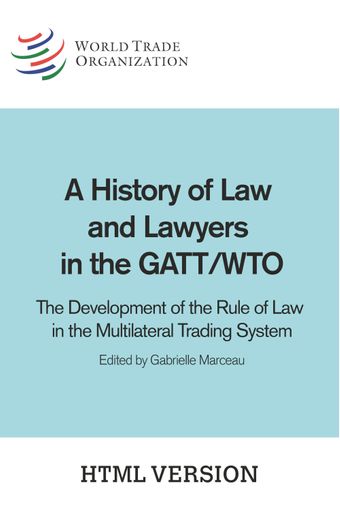Making law in ‘new’ WTO subject areas

- By: Robert D. Anderson
- Source: A History of Law and Lawyers in the GATT/WTO , pp 23-23
- Publication Date: January 2015
- DOI: https://doi.org/10.30875/5b2d3999-en
- Language: English
My work in the WTO as a professional educated in law and economics has been principally concerned with policy development and negotiations in less-established areas of WTO work, as opposed to dispute settlement or legal interpretation as such. It has had two main areas of focus: the interaction of trade and competition policy and international government procurement disciplines, although it has also touched on such disparate matters as the nature and determinants of economic development and the relationship of the organisation’s rules to human rights. It has been genuinely interdisciplinary in nature, involving the use of legal tools and analysis, economic insights, and policy improvisation in roughly equal measures. My years in the WTO have, perhaps, not always borne out Holmes’ dictum that ‘[t]he life of the law has not been logic: it has been experience’,1 though I have much sympathy with that viewpoint. They have, in any case, convinced me that empirical evidence is as important as logic in policy formulation; that progress in the formulation of international policies and legal disciplines will often be by fits and starts; and that the WTO and its rules have a noble mission and a huge contribution to make to human welfare, notwithstanding that the organisation’s role is frequently misunderstood and cannot be separated from broader economic, policy and political exigencies.
-
From This Site
/content/books/9789287046598s011-c011dcterms_subject,pub_countryId-contentType:WorkingPaperSeries -contentType:Periodical -contentType:BookSeries -contentType:ReportSeries105


